André Klein's Blog, page 10
July 2, 2017
7 Free Audiobooks for German Learners To Improve Your Listening Comprehension
Listening to audiobooks in German can be a great way to immerse yourself in the language. Even if you don’t understand each and every single word, it’ll help you familiarize yourself with the sounds and rhythms of the German language.
But there’s a problem. It’s not that when you search online for German audiobooks that there are no results – quite the contrary! There are millions of audiobooks that you can start streaming on Spotify, Vorleser.net, Ohrka.de, Youtube and other services within just a few seconds, even for free.
For beginners and intermediate learners however this will often be a frustrating experience, simply because most of these audiobooks are designed for native speakers and are either too difficult in terms of grammar or the narrator speaks too fast! This is why today I’d like to recommend a handful of titles that are relatively accessible for beginners.
If you’re looking for German audiobooks specifically designed with German learners in mind, please also check out our audiobook library.
Der kleine Prinz

This German translation of the timeless classic “Le Petit Prince” by Antoine de Saint-Exupéry can be a nice way to get started listening to German narrations, because unlike some classical German literature or fairy tales, this tale gets by without convoluted sentence structures and archaic vocabulary, plus there is a chance you already know the story!
Length: 1:07m
Provider: Spotify
Alternative versions: YouTube
Die Fremde

This story by the Austrian author Arthur Schnitzler tells the story of a man who awakes one morning during his honeymoon to find a goodbye-letter from his wife. In this story Schnitzler uses relatively simple syntax (few multi-clause sentences) and manages to tell a gripping story without too many difficult words. The streaming provider even offers a free PDF download to read along while you listen.
Length: 0:27m
Provider: Vorleser.net
Alternative versions: Spotify
Die drei Steine

This modern fairytale by German author Paul Maar is a beautiful little story about a mother and a daughter whose father mysteriously disappeared on a journey to America. Since the story was originally written for children, syntax and vocabulary shouldn’t prove too challenging.
Length: 0:15m
Provider: Ohrka.de
Listen on Ohrka.de
Die Katzen von Ulthar

This German translation of H.P. Lovecraft’s short story “The Cats of Ulthar” is a nicely slow and atmospheric reading of this creepy classic. The sentences are rather short, the story uses basic vocabulary and you can also get a free PDF copy.
Length: 0:10m
Alternative versions: YouTube
Anne Frank

This unabridged version of the The Diary of Anne Frank is an excellent title to improve your listening comprehension, for a number of reasons. First of all, although the overall diary is quite lengthy, the audiobook is presented in short segments ranging from 20 seconds to about 5 minutes length. This way you can slowly make your way through it without getting too overwhelmed. Secondly, Frank expresses herself in a very evocative but simple way so you won’t have to consult your dictionary too often.
Length: 10:33m
Alternative versions: YouTube
Alarm im Uhrenland

“Alarm in Clockland” is a children’s story by Georg K. Berres about a young boy who gets curious about what happens when the clocks are turned forward and in the blink of an eye, a whole hour vanishes — when suddenly he finds himself in the midst of a great nocturnal adventure.
Length: 1:5m
Alternative versions: YouTube
Die Schrecken der deutschen Sprache

There is probably no German learner in the world who never quoted Mark Twain’s hilarious essay “The Awful German Language”. But did you know that Twain also once held a lecture in German titled: “Die Schrecken der Deutschen Sprache”? Strictly speaking, this is not an audiobook of course, but it’s a funny and insightful speech by someone who struggled (successfully) with the German language. Highly recommended!
Length: 0:6m
Alternative versions: YouTube
The post 7 Free Audiobooks for German Learners To Improve Your Listening Comprehension appeared first on LearnOutLive.
June 8, 2017
5 Best German-English Dictionaries Online, Offline, Apps & Add-Ons
Whenever people ask me which online German-English dictionary is the best, whether to use an app, a browser extension, an offline lookup tool or just go full retro and lug around a paper dictionary, I always answer: “Whatever works for you is best.”
Most online dictionaries today are high quality and will translate most words and even phrases without a hitch. But since there are still key differences in terms of layout, results and other features, I’d like to share a quick overview of my favorite German-English dictionaries in this post.
Dict.cc

This is by far one of my favorite German-English dictionaries online. It doesn’t have tons of bells and whistles, the design may be somewhat outdated, but its real strength is in the results, which include many idiomatic phrases and terminology from a variety of fields. Since every user can contribute, correct and verify translations dict.cc is something like the Wikipedia of German-English dictionaries: open, fast and community-driven. But don’t take my word for it. The proof is in the pudding!
 Vocabulary Trainer
Vocabulary Trainer Pronunciation Audio
Pronunciation Audio iOS App
iOS App Android App
Android App Free Database download
Free Database download
Dict.leo.org

In terms of features and quality this one is very similar to dict.cc, so it may just be a matter of preference – some of my German teaching colleagues swear by Leo, some by Dict.cc. In my experience, Leo may not always display as many results as dict.cc but one cool feature is that the results include forum entries that discuss the queried word which sometimes helps to clear up certain nuances. Leo has a very active community and the forum is always worth a visit when you’re stuck finding a translation. Another nice feature is that it shows you orthographically similar words on results pages. Recently, Leo also started providing for-pay (free-trial available) language learning courses, which may be helpful for beginners.
 Vocabulary Trainer
Vocabulary Trainer Pronunciation Audio
Pronunciation Audio iOS App
iOS App Android App
Android App Windows Phone App
Windows Phone App Firefox-Add-on
Firefox-Add-on Chrome-Extension
Chrome-Extension
Bab.la

First of all, bab.la has a really clean and neat design, and in terms of presentation is probably one of my favorites. Search results are very easy to navigate and always come with synonyms, examples and context. On top of this very solid and beautifully designed dictionary, bab.la offers many other helpful features such as a conjugation browser, quizzes, grammar overview and games.
 Pronunciation Audio
Pronunciation Audio iOS App
iOS App
Pons.com

This online German-English dictionary is provided by Pons, a renowned German publisher of dictionaries that was established in 1978. Just like their paper publications, the Pons online dictionary features a very clean layout and solid translations. One feature that I really like is that it shows “Usage Examples”, i.e. actual real-world examples how the word or phrase is used on websites.
 Vocabulary Trainer (also available as app)
Vocabulary Trainer (also available as app) Pronunciation Audio
Pronunciation Audio iOS App
iOS App Android App
Android App Windows App
Windows App
Linguee.com

Last but not least, I’d like to mention linguee which is a bit different because strictly speaking it’s not a dictionary but a search-engine for translations. You can also use it lookup simple words but its real strength lies in searching through a vast database of translations. For example, if a web-site has multiple language versions, Linguee will show you two sentences that include your query side by side. When you struggle with translating a certain word in context, Linguee will show you how other people before you have solved it.
 Pronunciation Audio
Pronunciation Audio iOS App
iOS App Android App
Android App
Which is your favorite German-English dictionary? Do you prefer an online version, app or paper edition? Let me know in the comments!
The post 5 Best German-English Dictionaries Online, Offline, Apps & Add-Ons appeared first on LearnOutLive.
5 Best German-English Dictionaries Online, Apps & Add-Ons
Whenever people ask me which online German-English dictionary is the best, whether to use an app, a browser extension, an offline lookup tool or just go full retro and lug around a paper dictionary, I always answer: “Whatever works for you is best.”
Most online dictionaries today are high quality and will translate most words and even phrases without a hitch. But since there are still key differences in terms of layout, results and other features, I’d like to share a quick overview of my favorite German-English dictionaries in this post.
Dict.cc
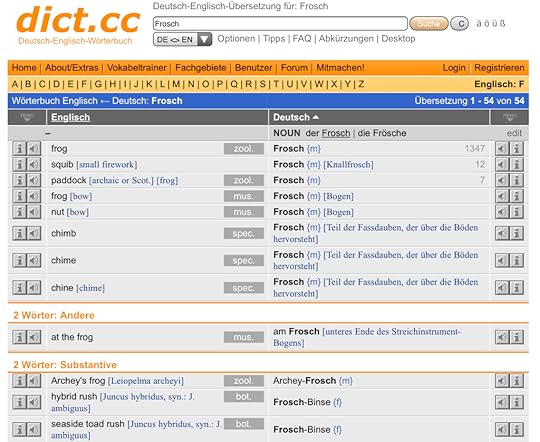
This is by far one of my favorite German-English dictionaries online. It doesn’t have tons of bells and whistles, the design may be somewhat outdated, but its real strength is in the results, which include many idiomatic phrases and terminology from a variety of fields. Since every user can contribute, correct and verify translations dict.cc is something like the Wikipedia of German-English dictionaries: open, fast and community-driven. But don’t take my word for it. The proof is in the pudding!
 Vocabulary Trainer
Vocabulary Trainer Pronunciation Audio
Pronunciation Audio iOS App
iOS App Android App
Android App Free Database download
Free Database download
Dict.leo.org

In terms of features and quality this one is very similar to dict.cc, so it may just be a matter of preference – some of my German teaching colleagues swear by Leo, some by Dict.cc. In my experience, Leo may not always display as many results as dict.cc but one cool feature is that the results include forum entries that discuss the queried word which sometimes helps to clear up certain nuances. Leo has a very active community and the forum is always worth a visit when you’re stuck finding a translation. Another nice feature is that it shows you orthographically similar words on results pages. Recently, Leo also started providing for-pay (free-trial available) language learning courses, which may be helpful for beginners.
 Vocabulary Trainer
Vocabulary Trainer Pronunciation Audio
Pronunciation Audio iOS App
iOS App Android App
Android App Windows Phone App
Windows Phone App Firefox-Add-on
Firefox-Add-on Chrome-Extension
Chrome-Extension
Bab.la

First of all, bab.la has a really clean and neat design, and in terms of presentation is probably one of my favorites. Search results are very easy to navigate and always come with synonyms, examples and context. On top of this very solid and beautifully designed dictionary, bab.la offers many other helpful features such as a conjugation browser, quizzes, grammar overview and games.
 Pronunciation Audio
Pronunciation Audio iOS App
iOS App
Pons.com
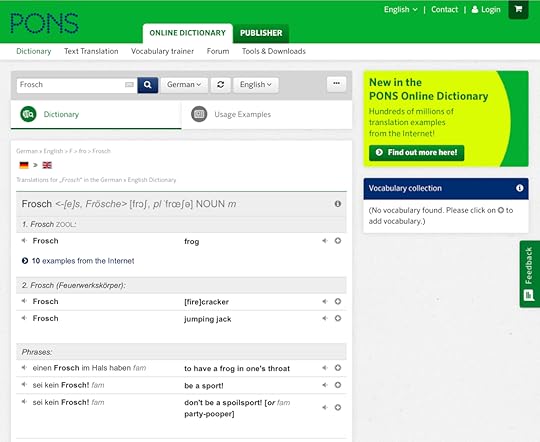
This online German-English dictionary is provided by Pons, a renowned German publisher of dictionaries that was established in 1978. Just like their paper publications, the Pons online dictionary features a very clean layout and solid translations. One feature that I really like is that it shows “Usage Examples”, i.e. actual real-world examples how the word or phrase is used on websites.
 Vocabulary Trainer (also available as app)
Vocabulary Trainer (also available as app) Pronunciation Audio
Pronunciation Audio iOS App
iOS App Android App
Android App Windows App
Windows App
Linguee.com

Last but not least, I’d like to mention linguee which is a bit different because strictly speaking it’s not a dictionary but a search-engine for translations. You can also use it lookup simple words but its real strength lies in searching through a vast database of translations. For example, if a web-site has multiple language versions, Linguee will show you two sentences that include your query side by side. When you struggle with translating a certain word in context, Linguee will show you how other people before you have solved it.
 Pronunciation Audio
Pronunciation Audio iOS App
iOS App Android App
Android App
Which is your favorite German-English dictionary? Do you prefer an online version, app or paper edition? Let me know in the comments!
The post 5 Best German-English Dictionaries Online, Apps & Add-Ons appeared first on LearnOutLive.
March 14, 2017
12 Hilarious German City Names Translated Literally & Their Real Origins
Almost everyone knows Germany’s capital and major cities. But did you know that we have tons of little towns and villages with the most absurdly hilarious names such as “Leiden” (suffering), “Darmstadt” (intestine city) and “Schweinsfurt” (swine ford). In the following post you can find a selection of funny German town names and their historic and linguistic origins, which often feature a surprising mix of languages.

photo by Peter Kaminsky, Berndroth, CC-BY-SA 4.0
Katzenelnbogen is a town in Rheinland-Pfalz whose name immediately conjures up images of cute kittens, but before you get too excited, it actually has nothing to do with our feline friends. First of all, the word “cat’s elbow” in German would actually be spelled a bit differently, namely “Katzenellbogen”. In fact, the true origin of the name remains unclear. Some theories state that it is a Germanized form of the latin Cattimelibocus, which may refer to the people of Catti, the forefathers of the Hessians. But there are also those that claim that the name actually stands for a “small angled bend of a river or brook”.

photo by Marc Ryckaert, CC BY 3.0
Oberbillig is an old fishermen’s village at the Mosel river. So is it a great place to get discounts? Perhaps, but it seems that the name actually has Celtic roots, since it was first registered as “Billich” in 965 A.D.

phot by Michielverbeek, CC BY-SA 3.0
While inhabitants of the Bavarian Pups (pronounced: “poops”) have to endure constant questions about the local wind situation and how their bean harvest is going, the name actually dates back to a Roman settler called “Pupis” or “Puppis”. By the way, just like a Frankfurter is a person from Frankfurt, an inhabitant of Pups would literally be a Pupser, i.e. someone engaging in flatulence.

photo by Klaus Graf, CC BY-SA 2.5
Sommerloch, literally: “summer hole”, is a small town in Rheinland-Pfalz but it’s also the German term for what is known as the “silly season” in the UK, “dog days of summer” in the US, or “cucumber time” in many other languages, in short: the slow news season. Granted, Sommerloch is a small town and therefore not exactly at the center of exciting events, but apparently it did not receive this name for its lack of newsworthiness but because it simply refers to a “moist hollow”. (It used to be spelled “Sumerlachen”, with “Sumer” being an old term meaning “southwards” and “lache” referring to the hollow geographical region.)

photo by Dundak, CC BY-SA 2.5
Just like the world-famous Austrian town with the name “Fucking” (pronounced “fooking”) the Thuringian town of Drogen has a big problem with people constantly stealing their yellow town signs. To counter this, they’ve tried putting up alternative signs which are two meters high and therefore presumably out of reach of sign snatchers, but even this could not prevent the constant pilfery. Of course, in reality the name has absolutely nothing to do with getting high but is simply based on the Slavic “drog”, meaning something like “beautiful” or “lovely”.

photo by Rudolf Stricker, Attribution License
The Hessian city of Linsengericht literally means lentil dish and is perhaps one of the few city names in this list where the name is not a complete product of misunderstanding or Germanization, but the region was simply well-known for its bean fields. However, the term “Gericht” here doesn’t refer to a dish but to a place of execution (“Richtstätte”). Guten Appetit!

photo by MOs810, CC BY-SA 3.0
What’s this? A dairy-based brew? A place where cows indulge in malty pleasures? Unfortunately the town of Kuhbier in Brandenburg does not feature a single bovine-themed brewery, neither does its coat of arms show a mug and a cow. It’s simply a Germanized form of the French or Huguenot family name “Coubier”.

photo by S. Finner, CC BY-SA 3.0
The town of Altenheim in Baden-Württemberg may have an aging population, but it surely can’t be that bad! The origin of the name is unclear. Please add a comment if you know something!

photo by Joergens.mi, CC BY-SA 3.0
Insult or compliment? The name for the Swabian town Katzenhirn literally translates to “cat brain” but it’s neither an allusion to the size of cerebral matter of its inhabitants, nor does it refer to some morbid local dish. The term “(Ge)hirn” (brain) here just refers to the skull because for whatever mysterious reason this town was laid out in the shape of a cat’s skull! Go figure.

photo by Radosław Drożdżewski (Zwiadowca21), CC-BY-SA 4.0
Mückenloch is a town in Baden-Württemberg with a population of about 1100 inhabitants. First recorded as “Muegenloch” in 1273, the original meaning of the name is unclear but curiously, since this village is situated in an area with many brooks, it’s actually a perfect breeding ground for mosquitoes!

photo by Dirk Ingo Franke, CC BY-SA 2.0 de
Todesfelde is a small town in Schleswig-Holstein, Northern Germany, which sounds like an address for a graveyard or a gated community from the zombie apocalypse. But apparently, it was originally called “Odesfelde”, without the “T”, which simply means “Ode’s Field”. It’s not clear who “Ode” is or why they added a “T”. Curiously, though, in 2012 and 2013 archaeologists discovered the remains of a Bronze Age settlement in area, including a huge burial ground! Nomen est omen.

photo by Clemensfranz, CC BY-SA 3.0
Kotzen is a Brandenburg town which sounds like the binge-drinking capital of Germany but actually has nothing to do with the verb “kotzen”, to vomit. In fact, it was originally registered as “Cozym” which is based on a Slavic root that means something like “wisps of hair” or “goats”. Prost Mahlzeit!
–
The post appeared first on LearnOutLive.
February 6, 2017
The Funny German Animal Names Quiz
The German language is (in)famously known for being very productive when it comes to inventing new words by simply stringing two or more existing ones together. For example, in German a vacuum cleaner is simply called “dust sucker” (Staubsauger), a kettle is a “water cooker” (Wasserkocher) and the place where our teeth are anchored is known as “tooth meat” (Zahnfleisch). Logical, isn’t it?
Also when it comes to the world of animals, German has a lot of funny combinations. A bat is a “fluttering mouse” (Fledermaus), a sloth is known as “lazy animal” (Faultier) and so on. Now you can check your own knowledge of funny German animal names with the following quiz.
Ready? Let’s get quizzical!
.postid-17430 .post-content p.wp-caption-text {margin-bottom: -26px;}

1. Got some ink?
der Truthahn (turkey)
das Seepferdchen (seahorse)
der Tintenfisch (octopus)

2. It’s laundry time!
der Eisbär (polar bear)
der Waschbär (racoon)
der Braunbrär (brown bear)

3. The Master of Self-Defense
der Grasfrosch (grass frog)
die Schildkröte (turtle)
die Gemeine Kröte (common toad)

4. Who’s roaming the underwater pastures?
die Seekuh (manatee)
das Seepferdchen (seahorse)
der Seehund (seal)

5. Are you clucking at me?
der Pfau (peacock)
der Truthahn (turkey)
der Spatz (sparrow)

river by Friedrich Santana from the Noun Project
6. Masters of Currents
das Seepferdchen (seahorse)
der Seehund (seal)
das Flusspferd (hippopotamus)

7. Fidos of the Seven Seas
das Seepferdchen (seahorse)
die Seekuh (manatee)
der Seehund (seal)

8. Here’s a difficult one
der Büffel (buffalo)
das Eichhörnchen (squirrel)
das Einhorn (unicorn)

Pig by aLf from the Noun Project
9. Captain Oink
das Stachelschwein (porcupine)
das Wildschwein (boar)
das Meerschweinchen (guinea pig)

10. The Slitherer’s New Clothes
die Nacktschnecke (slug)
die Hummel (bumblebee)
die Blindschlange (blind snake)

Pig by aLf, Cactus by vicentnovoa from the Noun Project
11. Pretty Prickly
das Ferkel (baby pig)
das Stachelschwein (porcupine)
das Wildschwein (boar)
The post appeared first on LearnOutLive.
January 30, 2017
5 Free German Textbooks For Beginners
Like most textbooks, German textbooks can be quite pricey, and especially for students with a low-budget or those just looking for a good way to get started without breaking the bank, free online textbooks can be a good alternative. But where to find them?
When you search online for free German textbooks online, there are quite a lot of 19th century books from the public domain but they often use outdated words and the indecipherable Fraktur typeface which makes them pretty useless to most contemporary learners. On the other hand there is also a handful of really good free German textbooks out there, but they can sometimes be hard to find. This is why I’ve collected my personal top 5 free German textbooks below:
Deutsch im Blick
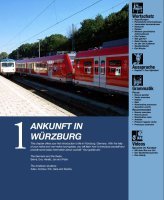 “Deutsch im Blick” is an excellent free textbook for beginners by the University of Texas that’s just as good (or even better) than many expensive German textbooks I’ve seen. It comes in PDF format and has tons of additional (downloadable) and interactive materials like video clips, quizzes, quests, audio for pronunciation and comprehension practice, a comprehensive index and much much more. By working through chapter 1-10 and the various materials anyone will be able to acquire basic German skills in no-time, free of charge.
“Deutsch im Blick” is an excellent free textbook for beginners by the University of Texas that’s just as good (or even better) than many expensive German textbooks I’ve seen. It comes in PDF format and has tons of additional (downloadable) and interactive materials like video clips, quizzes, quests, audio for pronunciation and comprehension practice, a comprehensive index and much much more. By working through chapter 1-10 and the various materials anyone will be able to acquire basic German skills in no-time, free of charge.
 Video
Video Audio
Audio Exercises
Exercises
 Format: PDF/HTML
Format: PDF/HTML
A Foundation Course in Reading German
 While it doesn’t have the audiovisual bells and whistles of “Deutsch im Blick”, this open online textbook by Howard Martin and Alan Ng nevertheless is a very solid and structured German textbook which doesn’t require any previous experience or knowledge. It’s mostly text-based (with the occasional interactive exercise) which may let it seem bland it first, but the clean and concise presentation is its greatest strength. Whether you follow the table of contents in the sidebar or jump through links across the chapters, navigating through the content is a breeze!
While it doesn’t have the audiovisual bells and whistles of “Deutsch im Blick”, this open online textbook by Howard Martin and Alan Ng nevertheless is a very solid and structured German textbook which doesn’t require any previous experience or knowledge. It’s mostly text-based (with the occasional interactive exercise) which may let it seem bland it first, but the clean and concise presentation is its greatest strength. Whether you follow the table of contents in the sidebar or jump through links across the chapters, navigating through the content is a breeze!
 Exercises
Exercises Format: HTML
Format: HTML
FSI German Basic Course
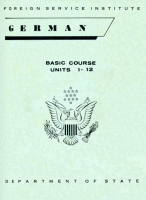 Another excellent resource that shouldn’t be missing in any post about free German textbooks is the FSI German Basic Course, originally developed in the 1960s by the US government’s Foreign Service Institute and now in the public domain. This course was designed by with absolute beginners in mind and teaches the most basic vocabulary for daily situations, fundamental grammar and everything else you need to get started. The presentation may be a bit dated, but don’t be discouraged by the lack of glitzy graphics – this is still one of the best free German textbooks you can find on the net. The archive.org has both the original text in PDF, EPUB, MOBI and other formats and the accompanying audio segments as MP3s.
Another excellent resource that shouldn’t be missing in any post about free German textbooks is the FSI German Basic Course, originally developed in the 1960s by the US government’s Foreign Service Institute and now in the public domain. This course was designed by with absolute beginners in mind and teaches the most basic vocabulary for daily situations, fundamental grammar and everything else you need to get started. The presentation may be a bit dated, but don’t be discouraged by the lack of glitzy graphics – this is still one of the best free German textbooks you can find on the net. The archive.org has both the original text in PDF, EPUB, MOBI and other formats and the accompanying audio segments as MP3s.
open this textbook open the audiobook
 Audio
Audio Exercises
Exercises Formats: HTML/EPUB/MOBI/PDF
Formats: HTML/EPUB/MOBI/PDF
Essential German
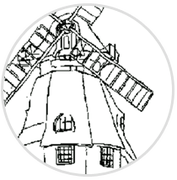 This online textbook by Eugene R. Moutoux, subtitled “A No-Frills Approach to Reading and Writing German “, is divided into four different books (presented as text with the occasional image). By working through the various chapters, you’ll learn everything from basic grammar (including exercises) to fundamental vocabulary and even get to practice your reading skills on some short stories. The presentation may be in need of an update (a revised paperback edition apparently is available from the author for a price) but the content and basic layout of the free edition still provides a solid way to begin learning the German language.
This online textbook by Eugene R. Moutoux, subtitled “A No-Frills Approach to Reading and Writing German “, is divided into four different books (presented as text with the occasional image). By working through the various chapters, you’ll learn everything from basic grammar (including exercises) to fundamental vocabulary and even get to practice your reading skills on some short stories. The presentation may be in need of an update (a revised paperback edition apparently is available from the author for a price) but the content and basic layout of the free edition still provides a solid way to begin learning the German language.
 Exercises
Exercises Format: HTML
Format: HTML
Tom’s Deutschseite
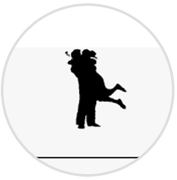 I’ve already mentioned this website in my article about German worksheets, but it also deserves a place right here, because apart from the excellent grammar explanations (in English) and downloadable worksheets, this website is as comprehensive as traditional textbooks and covers a lot of ground from grammar to spelling, basic vocabulary, pronunciation and more.
I’ve already mentioned this website in my article about German worksheets, but it also deserves a place right here, because apart from the excellent grammar explanations (in English) and downloadable worksheets, this website is as comprehensive as traditional textbooks and covers a lot of ground from grammar to spelling, basic vocabulary, pronunciation and more.
 Exercises
Exercises Audio
Audio
 Format: PDF/HTML
Format: PDF/HTML
The post 5 Free German Textbooks For Beginners appeared first on LearnOutLive.
October 25, 2016
German States & Capitals Quiz

It is commonly known that Germany is a country in the center of Europe. But did you know that the offical name for it is actually “Bundesrepublik Deutschland” (BDR) which translates to “Federal Republic of Germany”? In short, modern Germany is a federation of many different states which are called “Bundesländer” (federal states). Each Bundesland has its own local government, parliament, policies, etc. In the following quiz you can test your knowledge about German states and their capitals.
Ready? Let’s get quizzical!

1. How many states (“Bundesländer”) are there in total?
8
16
25

2. Which are the three city states (“Stadtstaaten”)?
Berlin, Hamburg, München
Bremen, Hamburg, Stuttgart
Bremen, Hamburg, Berlin

3. Which Bundesland has the largest population?
Bayern (Bavaria)
Nordrhein-Westfalen (North Rhine-Westphalia)
Niedersachsen (Lower Saxony)

4. Which is the richest Bundesland (according to GDP per capita)?
Rheinland-Pfalz (Rhineland-Palatinate)
Hamburg
Mecklenburg-Vorpommern

5.Which of the following Bundesländer doesn’t have an animal on their coat of arms?
Berlin
Sachsen (Saxony)
Thüringen (Thuringia)

6. Which is the largest Bundesland in terms of square kilometers?
Bayern (Bavaria)
Mecklenburg-Vorpommern
Brandenburg

7. The most northern Bundesland is …
Schleswig-Holstein
Sachsen (Saxony)
Bremen

8. The capital of Hessen (Hesse) is …
Wiesbaden
Frankfurt
Fulda

9. Düsseldorf is the capital of …
Saarland
Niedersachsen (Lower Saxony)
Nordrhein-Westfalen (North Rhine- Westphalia)

10. Which of the following is not a “Neues Bundesland”, i.e. part of the former GDR, East Germany?
Mecklenburg-Vorpommern
Hessen (Hesse)
Sachsen-Anhalt

11. The smallest Bundesland in terms of km² (not counting city-states) is …
Brandenburg
Saarland
Sachsen (Saxony)

12. What is the capital of Niedersachsen (Lower Saxony)?
Kiel
Magdeburg
Hannover

13. The capital of Baden-Württemberg is …
Potsdam
Munich
Stuttgart

14. Dresden is the capital of …
Thüringen (Thuringia)
Saarland
Sachsen (Saxony)
The post German States & Capitals Quiz appeared first on LearnOutLive.
September 22, 2016
17 Hilarious German Insults That Are More Funny Than Offensive
One of the peculiarities of the German language is that you can very easily string nouns together to create new words which very quickly leads to monstrosities like Donaudampfschifffahrtskapitänkajütentürknauf” (door handle of a Danube captain’s cabin).
Unsurprisingly, some of the best German insults are compound nouns. Below, we’ve collected 17 funny, strange and ridiculous German insults (for educational purposes only of course). Some of them are used in daily life, others are a bit more meta, but they are all good examples of how compound nouns can be used to effectively and intelligently insult someone.

Do you know what a Bananenbieger (m) is? The word literally translates to “banana bender” and just like in English the -er at the end makes it look like a job or tool (driver, gardener, screwdriver, etc.) So a Bananenbieger is someone whose job is to bend bananas. Sounds silly? That’s the point. In German this insult is being used to describe someone who doesn’t want to concentrate on his studies and therefore will inevitably find no other occupation than doing something utterly pointless.

Another -er word, the Erbenszähler (m) is a nitpicker, someone who is constantly concerned with insignificant details.

A Blockflötengesicht (n) literally means a face that looks like a recorder. Doesn’t make any sense? It’s quite simple, actually. Just like the standard recorder has 7 openings a Blockflötengesicht has 7 openings (2 eyes, 2 ears, 2 nostrils, 1 mouth) out of which comes nothing but warm/hot air, i.e. empty talk.

Another -er word, the Gehirnverweigerer (m) is a play on the more common Wehrdienstverweigerer, meaning a draft dodger. Whereas the latter refuses to take up arms for his country, the former simply refuses to use his grey matter.

Lackaffe (m): This simple but effective insult describes members of the male species that dress overly flashy in the belief that this makes them better human beings while in the end they probably just look like a “lacquer monkey”.

Probably one of the longest and most complex words in this list the Bewegungslegastheniker (m) describes a person to whom simple movements (whether in the realm of gross or fine motor skills) are just as impenetrable as the alphabet is to a dyslexic. In short, a “klutz” or “butterfingers” who stumbles and fumbles through life.

A Pappnase (f) is a person whose failure to understand something is cause for great amusement and/or pity. Based on the clown’s cardboard nose, this insult is used to lovingly insult someone who somehow just didn’t see the obvious.

image via Wikimedia Commons (CC BY 2.5)
If you want to make a point that a person is so stupid that the procreation of their dubious genetic makeup will lead to a massive slowdown of human evolution you don’t have to resort to expletives. Just call them an Evolutionsbremse (f) and you’re done.

Do you know these people who always need to do things 200% by the book and focus on the most irrating of details? Well, in German they are called Ameisentätowierer (m), because their habits are as annoying as trying to tattoo an ant’s back.

This is a simple but effective insult to hint that somebody’s intelligence may be sub-par at best, because they are just “one cellers”, so what did you expect?

A Klappspaten (m) is strange tool. It looks like a shovel, it functions like a shovel, but it just feels so … stupid. So if you want to insult someone who looks a person and talks like a person … well, you get the idea.

One of the rare insults in this list which is not primarily aimed at human beings, Kampfdackel (m) refers to any annoying canine that thinks its a Doberman or a Great Dane but barely reaches up to its owners knee.

Another -er word, the Dünnbrettbohrer (m) may refer to either a drill or a person wielding said drill for the purpose of drilling very very thin boards. If you think about it a “thin-board-driller” is a bit like a Kampfdackel, all bark and no bite.

A Landei (n) may refer to a delicious untampered-with egg straight from the farmer’s market, whereas for the human “country egg” the same lack of development is usually marked as something negative. Funny, isn’t it?

The mouth opens and the mouth closes. But all that comes out is hot air. That’s a Heißluftgebläse (n), literally a hot air blower or ventilator.

Talking about air, the Hohlkopf (m) is a head with nothing inside it except, well … air.

Last but not least, the Dumpfbacke (f) is a person who’s not just a bit naive and/or intellectually challenged but also lacks empathy and a general sense of reality. In short, the worst kind of stupid.
–
The post 17 Hilarious German Insults That Are More Funny Than Offensive appeared first on LearnOutLive.
July 29, 2016
11 German Idioms About Summer & Sun
German idioms are a great way to learn new words as part of short phrases and expressions that you can immediately apply in everyday life. Today, I’ve collected 11 German idioms around the theme of summer, holiday, heat and sun. Ready? Los geht’s!

This German idioms literally means “to go bathing” but does not necessarily refer to any water-related activity. We use this expression whenever we want to express that something didn’t go our way, i.e. wasn’t successful. “Mein neues Startup is baden gegangen.”

When you want to say that something isn’t even barely enough, you can use this German idiom to say that it is like “a drop on a hot stone”, i.e. it immediately evaporates.

“Balkonien” is the magic place where Germans go on vacation (“Urlaub”) when they can’t afford (or don’t want) to travel farther then their own four walls. In short, it refers to what is called a “staycation” in the English-speaking world and comes from the word for balcony: “der Balkon”.

When someone is annoying you, this German idiom is a great way to tell them to cut it out and disappear. The literal translation is “Go me out of the sun!” and its origin dates back to the legendary conversation between the Greek philosopher Diogenes and Alexander the Great. When Alexanders offered to fulfill any wish of Diogenes, a dirt poor man who used to live in a barrel, the hermit allegedly simply replied: “Stand out of my sun!”

In German “per Daumen reisen” literally translates to “travel via thumb” and describes the act of hitch-hiking, i.e. sticking out your thumb in the hope that someone will take you along the road.

This German idiom is used to describe a person who is always happy, hopeful and optimistic. It literally means “to have the sun in one’s heart.” So you could say something like: “Peter ist ein glücklicher Junge. Er hat die Sonne im Herzen.”

This idiom literally translates to “What I don’t know doesn’t make me hot.” and the English equivalent would be something like “ignorance is bliss.” In other words, if you don’t know about something you can’t fret about it. Logical, isn’t it?

The literal translation of this German idiom is “to make someone the hell out” and as you might have already guessed, it’s not something pleasant. You could use this idiom for example to describe your boss breathing down your neck: “Ich muss das Projekt heute beenden. Mein Chef macht mir die Hölle heiß!”

When you want to say that something is commonly available in huge quantities you can say that it is like “Sand am Meer” (like sand at the beach). “Es gibt gute Bücher wie Sand am Meer, aber ich habe nicht viel Zeit zum Lesen.” An English English equivalent would be “like dime a dozen”.

“Baden” is the German verb for bathing and “die Menge” refers to a crowd of people. Hence, “bathing in a crowd” means to have direct contact with a lot of people. “In der Menge baden” doesn’t necessarily imply physical contact but simply immersing oneself in a social setting through conversation, etc.

The German verb “tanken” means “to fuel” and we use the idiom “Sonne tanken” (literally: “to fuel up with sun”) to describe the act of sunbathing, escaping the German rains for a sunny holiday or any other way of replenishing our notoriously low levels of sunlight.
–
The post 11 German Idioms About Summer & Sun appeared first on LearnOutLive.
June 14, 2016
The Strange German Food Quiz
Germany has a lot of culinary weirdness to offer. Not only are some of our regional specialties very peculiar in nature, they often also come with names which are rather silly. Can you decipher the titles and find out what these dishes are made of? Caution: Some of these are not for the faint of heart.
1. “Arme Ritter” (poor knights) refers to …
photo by Oliver Hallmann via Flickr
pancakes
french toast
donuts
2. Milbenkäse is …

photo by Ivo Bauer via Wikimedia
a milk with cheese taste
a cheese made by and with live mites
a cheese with lots of mildew
3. What is “Kalter Hund” (cold dog)?

photo by nadine.juliana via Flickr
butter cookies and vanilla frosting
a dessert made with biscuits and chocolate frosting
ice-cream with chocolate cookies
4. What is Fantakuchen?

photo by tin.G via Flickr
cookies with Fanta taste
a cake containing Fanta
a cake baked in Fanta cans
5. Why is this pickled herring called “Rollmops”?

photo by Peter O’Connor aka anemoneprojectors via Flickr
It looks like it was used to mop the floor.
It looks round like a pug.
It is eaten by people that “mope around”.
6. Do you know what “Himmel und Erde” means?

photo by AlishaV via Flickr
apple sauce and mashed potatoes
pear sauce and mashed potatoes
apple sauce and mashed carrots
7. “Nonnenfürzle” translates to …

photo by Mufi69 via Wikimedia
nonsense fire
nibbler’s delight
small nun farts
8. Which type of “Spargel” (asparagus) is typically German?

photo by alasdairnicol via Flickr
white asparagus
green asparagus
Germans hate asparagus
9. What is Teewurst?

photo by Best German Food via Flickr
a tea beverage packaged like a sausage
a spreadable pork sausage
a sausage containing tea leaves
10. Bierkäse is …

photo by Langinger via Wikimedia
a cheese which has the color of beer
butter that tastes like beer and cheese
a cheese marinated in beer
The post The Strange German Food Quiz appeared first on LearnOutLive.



